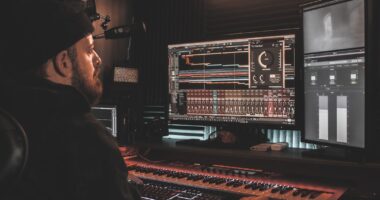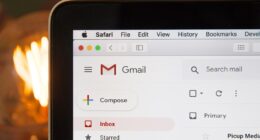It’s easier and more appealing than ever to be an independent musician in today’s music industry. Without the restrictions & limitations frequently associated with major record labels, independent artists, or indie artists, are free to make & release music on their own terms. This piece will examine the benefits of being an independent musician and offer methods and resources to support them in advancing their careers & spreading their music. The creative freedom that comes with being an independent artist is one of its main benefits.
Key Takeaways
- Indie artists have the advantage of creative control and flexibility in their music careers.
- A music industry database can help indie artists connect with industry professionals and opportunities.
- Indie musicians can use social media to promote their music and build their brand.
- Collaborating with other indie artists can increase exposure and create new opportunities.
- Creating engaging visual content can enhance the promotion of indie music.
Independent musicians are free to make music that authentically embodies their artistic vision, unlike those signed to major labels. Commercial pressures or the requirement to adhere to a particular genre or style do not constrain them. Because of their creative freedom, independent musicians are able to explore a variety of sounds and genres and produce genuinely original and genuine music. Another benefit of being an independent artist is flexibility.
Without needing to wait for permission from a record label, independent musicians are free to release music whenever they want. They can also select the producers, engineers, & collaborators they want to work with, which gives them the freedom to surround themselves with people who share and understand their creative vision. Independent musicians are free to schedule their own concerts and tours & interact with their fans directly, so this flexibility also carries over to live performances. An invaluable resource for independent musicians is a music industry database. It is an extensive compilation of data about the music business, including the contact information of booking agents, record labels, music publishers, and other industry players.
Indie musicians can connect with the right people and opportunities to advance their careers by having access to a music industry database. From paid subscription services to free online directories, there are many different kinds of music industry databases accessible. You should take into account the particular requirements of your music career when selecting a database. Certain databases cater to particular genres or geographical areas, whereas others offer a wider variety of connections.
To guarantee that the data is accurate, it’s also critical to make sure the database is updated and maintained on a regular basis. A vital component of promoting music & growing a fan base is marketing. To connect with their intended audience and spread the word about their music, independent musicians must create powerful marketing plans. The following are some methods independent musicians can employ to market their music:1.
Establish Your Target Audience: Establishing your target audience is crucial before putting any marketing strategy into action. You can better target your marketing & connect with the right audience by knowing who your music appeals to. 2. Establish Clear Objectives & Develop a Marketing Plan: These actions will assist you in maintaining organization and focus. Establish clear goals for yourself, such as growing your social media following or scheduling more live performances, and lay out the steps you’ll take to get there. 3.
Make Use of Social Media: Sites like Instagram, Facebook, Twitter, and YouTube are excellent resources for music promotion and fan growth. Use targeted advertising, engage with your followers, and produce interesting content to reach a larger audience. 4. Create an Email List: Getting in direct contact with your fans through email marketing is very successful. Encourage your fans to subscribe to your email list and send out updates on a regular basis regarding new music, upcoming performances, and other news. 5. Partner with Influencers: Partnering with influential people within your genre or specialty can help you expand your audience & establish credibility.
Seek out celebrities who share your vision and taste in music, & look into joint ventures like guest appearances or performances. The way music is consumed and promoted has been completely transformed by social media. It gives independent musicians a direct & quick way to interact with their fans and develop a devoted fan base.
To effectively use social media to promote your music, follow these tips: 1. Select the Correct Platforms: Picking social media sites that are appropriate for your target audience is crucial because not all of them are made equal. Examine which platforms are most popular with members of your target audience, then concentrate your efforts there. 2. Provide Attention-Grabbing Content: Because social media is a crowded place, it’s critical to provide content that grabs attention & keeps readers interested.
Try a variety of content formats, like Q&A sessions, live performances, and behind-the-scenes videos, to keep your fans engaged. 3. Engage with Your Following: You can communicate with people on social media in both directions. Spend some time answering your followers’ messages, comments, and mentions. By interacting with your audience, you can develop a devoted following and foster a feeling of community around your music. 4.
Employ hashtags: Hashtags are an effective way to make your social media posts more visible. To reach a larger audience, find trending hashtags in your genre or specialty and strategically incorporate them into your posts. 5. Work Together with Other Artists: By collaborating with other independent musicians, you can access their fan base and reach a wider audience.
Seek out artists who have similar tastes in music and look into joint ventures like CD releases or live events as collaborative opportunities. Independent musicians must establish a powerful brand. What distinguishes you from other musicians and facilitates communication with your intended audience is your brand. As an independent artist, you can use the following advice to develop your brand:1.
Determine Your Unique Selling Proposition: What sets you apart from other musicians? Whether it’s your stage persona, lyrics, or musical taste, pinpoint your USP and leverage it to craft a compelling and genuine brand. 2. Create a Consistent Visual Identity: Your brand should be reflected in your visual identity, which includes your logo, album art, and promotional materials.
Create polished images that complement your music and style by working with a graphic designer or using free online resources. 3. Storytelling: An integral element of your brand is your story. To build a relationship with your audience, talk about your experiences, inspirations, and artistic journey. Tell your story in an engaging and genuine way using your website, social media accounts, & interviews. 4. Interact with Your Fans: Developing a strong brand involves more than just marketing your music; it also entails cultivating a bond with your audience.
Spend time interacting with your fans in person and online to foster a sense of community around your music. Getting together with other independent musicians can be a great way to gain more recognition & develop a following. The following advice can help you locate and work with other artists:1. Participate in Local Shows and Open Mic Nights: These events are excellent resources for finding out about other independent musicians performing nearby.
Join in on a regular basis at these gatherings to expand your network of like-minded artists. 2. Utilize Online Resources: SoundCloud, Bandcamp, and Spotify are excellent online resources for finding and getting in touch with other independent musicians. Seek out collaboration opportunities with musicians whose work you enjoy. 3. Joint Releases: Working together to release a song or EP together will allow you to reach a wider audience and capitalize on each other’s fan bases. Select an artist whose sound you like, then collaborate to make a release that is both compelling & well-thought-out. 4.
Live Performances: You can reach a larger audience and give your fans an unforgettable experience by working together on live performances, such as joint shows or tours. Seek out musicians who have similar tastes in music & look into doing joint shows. One of the best ways to get exposure and promote your music is to get it featured on music blogs and podcasts. The following are some pointers for corresponding with podcasters and bloggers:1.
Look Up Related Blogs & Podcasts: Look up blogs and podcasts that have a devoted following and cover your genre or specialty. Seek for podcasts and blogs that complement your brand and musical taste. 2. Make Your Outreach Personalized: Spend some time making your outreach unique when contacting podcasters and bloggers. Explain why you believe your music would be a good fit for their audience, citing specific articles or episodes that you enjoyed. 3.
Offer Captivating Content: Make sure your music is submitted to blogs & podcasts with captivating content that will draw readers in. This could contain links to your music & social media accounts, a compelling bio, and excellent press photos. 4. Follow Up: Send a kind and courteous email to bloggers and podcasters after contacting them to inquire about their receipt of your submission and to thank them for their time.
The process of allowing a song to be used in commercials, video games, TV shows, movies, & other media is called music licensing. For independent artists, it can be an important source of revenue & visibility. Licensed music has the following advantages:1. Enhanced Exposure: You can reach a larger audience and attract new fans by getting your music licensed for use in movies, TV series, & advertisements.
You might not have been able to reach certain demographics using more conventional music promotion methods, but it can still help. 2. Royalties: You are entitled to payment for the usage of your music when a license is obtained. Your music career can be supported by these royalties, which can offer a reliable source of income. 3. Networking Opportunities: Collaborating with directors, producers, and music supervisors can lead to beneficial networking opportunities.
Developing contacts with these business leaders may result in cooperation and licensing opportunities down the road. 4. Establishing the legitimacy & validation of your music can be achieved by licensing it to respectable media outlets. It demonstrates how excellent & marketable your music is.
Start by looking into platforms & companies that specialize in matching independent musicians with licensing opportunities if you want to get started with music licensing. Before submitting your music for licensing, make sure you have all the required permissions and clearances. When it comes to promoting music, visual content is vital. It can draw in listeners and help establish the visual identity of your music. The following are some pointers for producing visually appealing content:1.
Music videos are an effective way to showcase your music & establish a visual identity for your band. Create music videos that complement your music & style by working with a videographer or using online resources. 2. Upon discovering your music, your album art frequently catches people’s attention. Make a quality investment in album art that embodies your music & represents your brand. Three.
Live Performances: Video recording live performances can yield interesting content for your website and social media accounts. Use a high-quality camera to record your performances, or think about hiring a professional videographer to capture your shows live. 4. Video from Behind the Scenes: Having video from behind the scenes can give your audience a more intimate understanding of your creative process and strengthen their bond with you. Post videos of your recording sessions, practice runs, and other behind-the-scenes activities to foster a feeling of transparency and genuineness. A distinct set of benefits come with being an independent artist, such as flexibility, creative control, and the chance to interact directly with your audience.
Independent musicians can use the techniques and resources covered in this article to successfully market their music & create lucrative careers at their own pace. Independent musicians have the ability to take charge of their music and leave a lasting impression on the industry through using social media, working with other artists, or looking into licensing opportunities. Hence, seize the chances that present themselves and embrace your independent advantage.
If you’re an independent music artist looking to gain an edge in the industry, you won’t want to miss out on this article about Indie Advantage: 5 Promo Services for Independent Music Artists. In this comprehensive guide, you’ll discover five promotional services that can help you boost your visibility and reach a wider audience. From playlist pitching to social media marketing, these services are designed specifically for independent artists like you. To learn more about how these promo services can benefit your music career, check out this informative article at https://musicmarketing.digital/hello-world/.
FAQs
What is the article about?
The article is about five promotional services that independent music artists can use to promote their music.
What are some of the challenges faced by independent music artists?
Independent music artists often face challenges such as limited resources, lack of exposure, and difficulty in getting their music heard by a wider audience.
What are some of the benefits of using promotional services?
Promotional services can help independent music artists increase their exposure, reach a wider audience, and build their fan base. They can also help artists get their music heard by industry professionals and potentially lead to more opportunities.
What are some of the promotional services mentioned in the article?
The article mentions five promotional services: SubmitHub, Playlist Push, Hypeddit, RepostExchange, and ToneDen.
What is SubmitHub?
SubmitHub is a platform that allows independent music artists to submit their music to blogs, record labels, and other industry professionals for review and potential promotion.
What is Playlist Push?
Playlist Push is a service that helps independent music artists get their music featured on popular playlists on streaming platforms like Spotify.
What is Hypeddit?
Hypeddit is a platform that allows independent music artists to promote their music through social media, email marketing, and other channels.
What is RepostExchange?
RepostExchange is a service that allows independent music artists to exchange reposts on SoundCloud, helping them reach a wider audience and gain more exposure.
What is ToneDen?
ToneDen is a platform that allows independent music artists to create and run targeted advertising campaigns on social media platforms like Facebook and Instagram.









